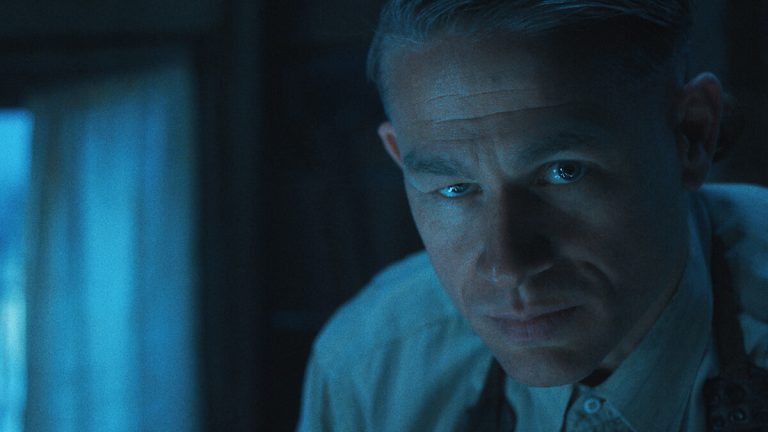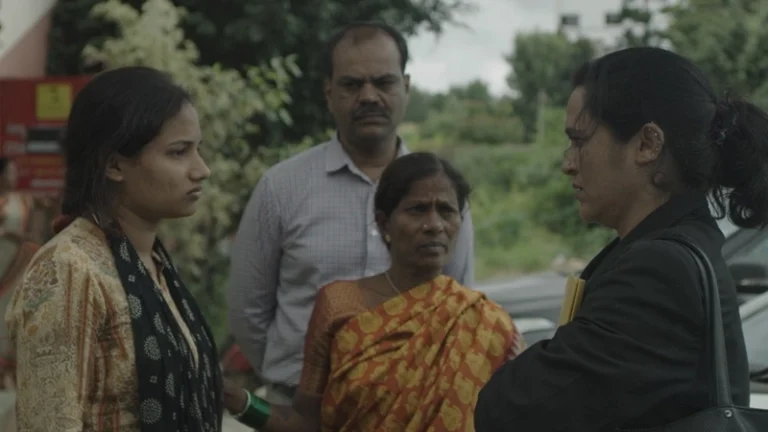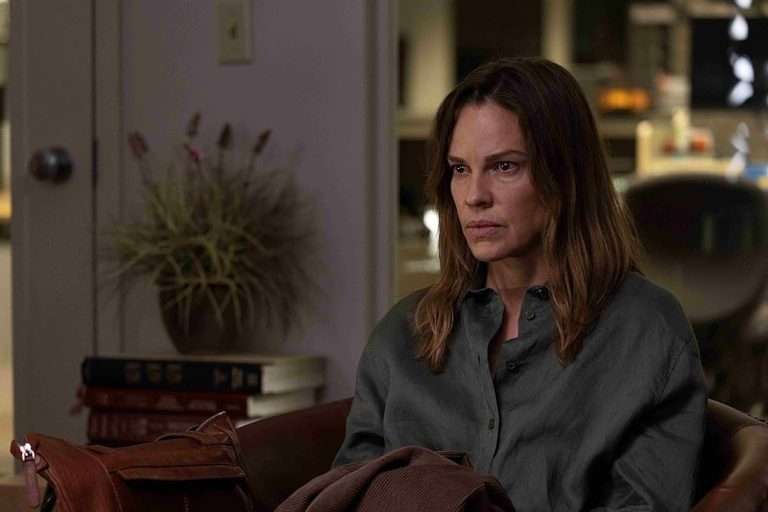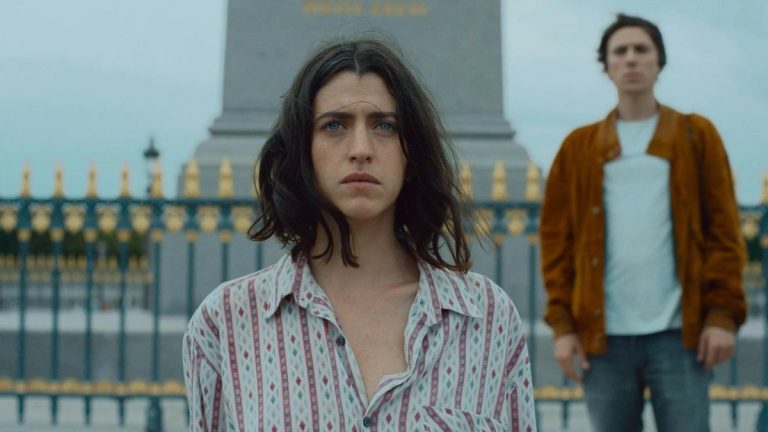Alina Maksimenko’s film opens in the Ukrainian city of Irpin in 2022. At the height of the Russian aggression on her country, she moves in with her old parents, who live in a village that’s relatively tucked out of the line of direct fire. She isn’t sure that remaining home is a wise and safe idea, but her parents, especially her father, Tolya, are adamant about not leaving. When she pops the news of a green corridor that’s been built for evacuation in extreme crisis, neither of them warms up to it. Her mother, Tetiana, is almost relieved when she is able to confirm her doubts that the living facilities in the corridor are unpleasant in their cooping up hordes of people in a tight space.
After a few initial attempts at persuading them to join her and head for the border, Alina surrenders to their suggestion that they stay back and wait out the war. They don’t seem to mind her camera, instead encouraging her to keep at her diaristic account of their precarious lives and times. Tolya, though, seems a tad surprised when she informs him that she is both the writer and director and that there’s no demarcation in the documentary as there could be in fiction. Nevertheless he lets her take control in representing their day-to-day lives.
Alina’s film has the intimate texture of warmly observed modest dramas circling the daily caring gestures and frustrations of a family. The adoration that seeps in the mother making cakes for them and the haircut she ministers to her husband is evocative of the deeply felt bonding among the family. At no point, and to the filmmaker’s credit, does the camera feel it’s invading the space of her parents’ relationships. There is mutual discord, disagreements that occasionally accelerate, but also the enduring stubbornness of love that keeps, if not the three, the mother and father, ineluctably clinched together. Like any other couple with a relationship founded on a generous, understanding companionship, they may vex each other every now and then and have passionate debates but curl back to one another.
Tolya persists in his assurance that the war will gradually peter out. Anyway, he adds that their place is in a certain geographical space that would not usually fall under the intended zones to be attacked. The family of three is acutely aware they are the only ones remaining in the village. Everyone has left, leaving behind their dogs and cats. Tolya willingly takes in several of the abandoned pets. His regular ritual of feeding and attending to the animals lining his house and neighborhood gives him his only sense of community. But how well-equipped can he possibly get when sources of support are depleting swiftly?
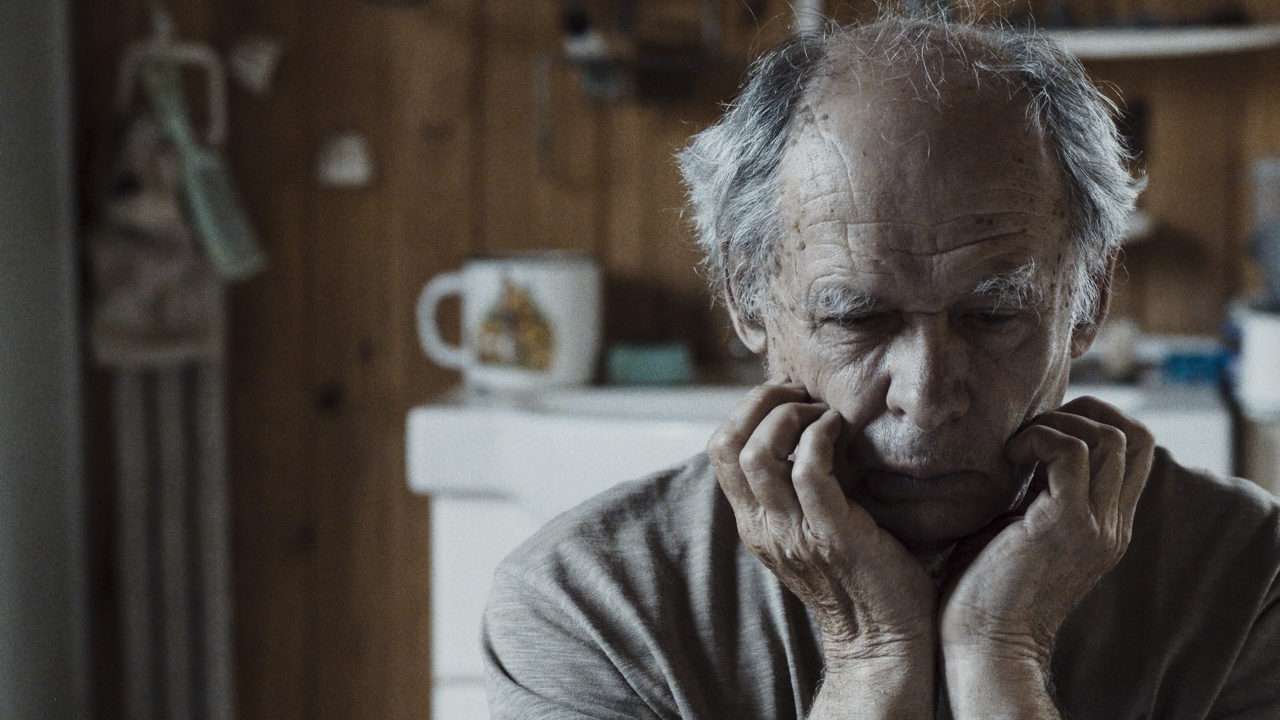
The loneliness of being removed from any sense of community and kinship creeps up even though the couple tries their best not to let it show in their daily routines. Tetiana eagerly waits for the stray flickers of the network so that she can carry on her remotely taught piano classes. Tolya sustains his engagement in all sorts of work around the house as well as the upkeep of the many animals demanding attention and nurture. Tetiana teases the near impossibility of him leaving their home and abandoning the animals to whom he is so devoted he cannot imagine a life without them.
The shelling, however, sticks as the constant ominous background score, framing these lives as being perched on immediate destruction. At any point, they could be bombarded. The radio blares reminders of nearby shelters; nevertheless, the couple is determined not to pause and rearrange the order of their lives. Tolya is firm in his masculine bravado that commands him to face the direst situation head-on instead of fleeing. His hardened ideals of apposite gendered behavior are revealed in a later scene when he lashes at his wife for trying to step into what he believes is the domain of men, i.e., handling guns.
He also grows skeptical that there might not be sufficient dramatic content in the diligent documentation that can prop up an entire feature. She reassures him there is. The film that she has crafted might be scaled back in scope but is armed with an immense magnitude of repressed panic and anxiety entrenched in the circumstances. The bubble the family has constructed in themselves is inevitably bound to collapse. The film closes on a deeply tremulous, tense note that fills us with stinging disquiet. “In Limbo” is full of a clipped, nevertheless pronounced shivering dread deliberately submerged underneath drawn-out denials.




![The New Girlfriend [2015]: A pyschosexual exploration of Friendship!](https://79468c92.delivery.rocketcdn.me/wp-content/uploads/2016/02/1436307724-The_New_Girlfriend_tickets-768x432.jpg)
